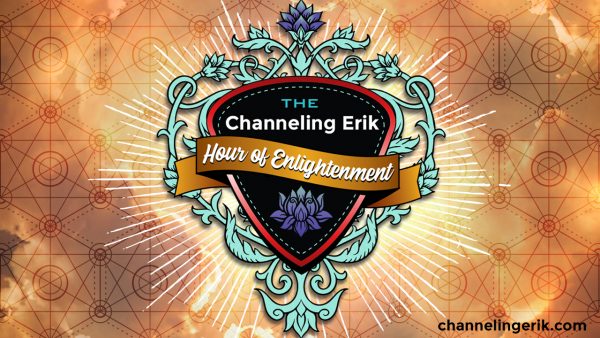The radio show last night was one of the best ever! Check it out!
I’m not going to write an intro for this post because people are waiting for me to help bring the boat out of storage, plus I have nothing intelligent to say!
Robert: By the way, sometimes I have a hard time verbalizing what Erik says because these are also things I’m dealing with. This is a perfect example of my resistance to something. It will prevent my mouth from saying it.
Me: Oh yeah.
Robert: It’s so clear in my mind, though. I’m struggling with [trauma] too. I see why he wanted to talk about it. He wants to challenge me because he knows I like to be challenged to a certain degree with subjects that he knows I’ll be uncomfortable with.
Robert laughs.
Me: Be careful what you wish for, Robert!
Robert (shaking his head): Oh lord. Well, I made a promise to him and to spirit in general that I would stop saying no to things, and I would just start doing. In fact, this is an example of what Erik is talking about in regards to how to get over trauma and how to release shame. Shame, itself, always says no. “No, no, no, no.”
Me: Interesting. Yeah.
Robert: It’s just an endless line of “nos.”
Me: So, in my case, the shame is survivor’s guilt. How do you get over that if it’s so unconscious?
Erik: You have to release yourself from the responsibility of what happened.
Me: Okay, like I’m not responsible for your death? Is that what you’re saying?
Erik: That’s right, Mom, because that was my choice, my action. I did it.
I nod my head solemnly.
Me (scrambling for comic relief): You chose poorly! What was that from?
Robert: Indiana Jones: The Last Crusade!
Me: Oh, that’s right!
Robert: “You chose poorly.”
Robert laughs.
Me: But that’s a whole other session right there. Well what about somebody who’s been raped or mugged? What can they do to disconnect from their shame?
Erik: For some people, they have to tell themselves that they did not ask for that.
Me: Yeah.
Erik: Because in some cases that’s what the person will believe.
Me: Why would they believe that?
Erik: It’s a complicated mix, Mom. In a lot of cases, if they believe that, it’s because something in society, family or somewhere along the line, they were taught that if something like that happened to you, you deserved it. You did something; you wore something or whatever. This happens all the time when people talk about rape in particular. That’s not always true for every woman. For some people, the shame is rooted in anger because they think to themselves, “Why didn’t I see that coming?”
Me: Ah.
Erik: So they blame themselves.
Me: Or, “Why couldn’t I avoid it?”
Erik: Right. “What did I do?” Sometimes the responsibility is put on them in that way. Other times, the anger is purely directed at, “How dare you do that to me?” There are a lot of different ways, and ultimately it always ties into survivor’s guilt and putting all the responsibility on your own shoulders for what transpired.
Me: Yeah. So you’re saying that survivor’s guilt is behind pretty much any kind of trauma or just with losing someone?
Erik: In most cases, Mom, absolutely yes.
Me: Okay. If you’re robbed at gunpoint, you feel guilty that you survived it or that nothing good should happen to you or what?
Erik: How can I put it so that that scenario makes sense?
(Pause)
Erik: If someone survives that, your life was put in danger at that moment, and—
Robert: Oh gosh, that reminds me. Now I know why I can connect to this. You see, I’ve had that happen to me, not at gunpoint, but at knifepoint. He wants me to tell my story. I was 17 years old working at a video store, and someone came in and robbed me. I was by myself. The guy went across my neck with a knife. It was just a superficial wound, but there was blood coming down my neck.
Me: Oh, my gosh!
Robert: I remember in the moment I was numb to it all because I guess that was my way of coping with it. The panic and the terror didn’t affect me until I got home that night. I was like, “Oh my god, I could have died.” In that instance, it’s as if you died, but then you find out you didn’t, and you have this sense of guilt from encountering that kind of experience. I hope I’m making sense.
Me: But yet you feel guilt that you survived when you really should have died?
Robert: Well, guilt that I’m feeling such terror, guilt at the fact that so many people around me are now terrified for me. And I took it all on myself. You see how this all is connecting to a sense of responsibility and holding on to it? So now I’m connecting to how Erik is saying that survivor’s guilt can tie into this.
Me: Right.
Robert: And you only feel guilty if you feel ashamed.
Me: That’s true.
Robert: And you only feel ashamed and guilty if you’re taking on so much responsibility for something.
Me: Gosh, why do humans feel guilt? I mean, any mother who loses a child, anyone who’s lost someone, there’s always that, “What did I not do? What did I do? How did I contribute even if in some small way? Should I not have put you in time out that one time when you stole cookies from the cookie jar and things like that.
Robert: He was saying something, and now it’s gone out of my head, but maybe he’ll repeat it in a little bit.
Me: Okay. All right, so any last words on trauma?
Erik: I’m going to come back to this later, but right now, that’s enough to kind of introduce people to it. This will get the ball rolling for people to heal from their trauma. A great number of the people who read the posts and watch the videos have been traumatized.
Me: And so many of us are shackled by guilt.
Erik: Yeah.
Me: And unnecessarily. I mean, it does nothing positive. It’s not constructive at all. All it does is tear things down.
Erik: You know what, Mom? Here’s the lesson you learn.
Robert: This is what Erik was going to say a while a go. He’s repeating it now.
Me: Oh, good.
Erik: This is the lesson that we learn from guilt, from taking on so much responsibility and for shame and all those things: We are learning to empathize and feel compassion not just for another person but for ourselves because the guilt that we feel is always a connection to what someone else felt.
Me: That’s true.
Erik: From what we might have done or witnessed.
Me: Like you feel like your family worried about you, and you felt guilty about that.
Robert: Right. I remember feeling that way. I felt very guilty; I felt terrified that I could have died or been seriously injured.
Me: Sure, and in my case, where would empathy fit in when I found you, Erik, after you killed yourself? Where’s the empathy? How does empathy come in from my guilt?
Erik: Mom, you already felt the empathy for me. You already felt the empathy for the family. This is a chance for you to feel empathy for yourself.
Me (somberly): Yeah. I get that.
Robert: He’s showing me a visual of you literally holding yourself, comforting yourself like you’re the mom to yourself. You’re hugging yourself and rocking yourself.
Me: Okay. I think that’s a nice place to close. Thank you, Erik. Thank you, Robert.
Robert: You’re welcome.
Me: Bye.
Erik: I love you, Mom.
Me: I love you. I love you so much.
Have a great weekend everyone!



